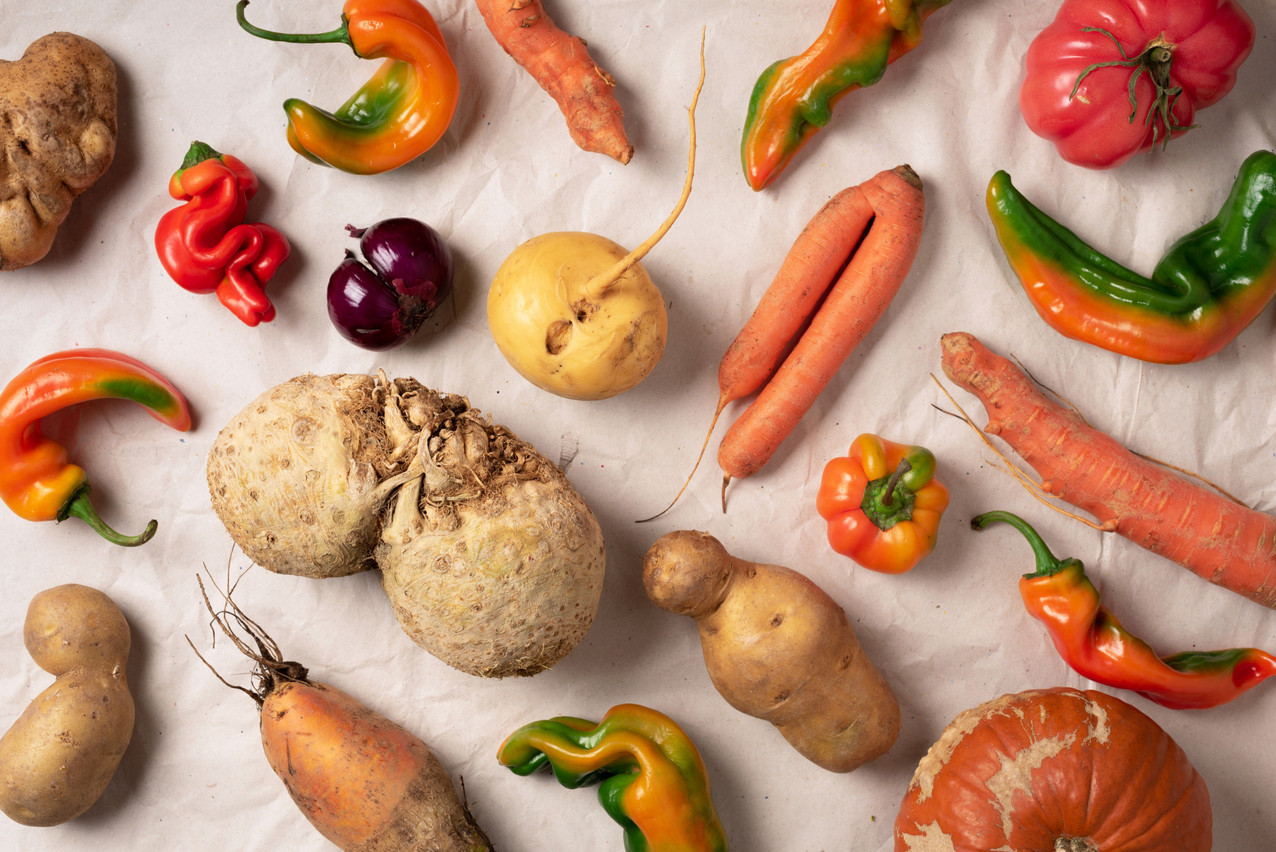5% of food is thrown out in supermarkets for not fitting the high standards of retailers. And even prior to reaching the warehouse, 40% of produce is disposed of by producers after the harvest. The argument is that, if a courgette looks different than what we’re used to, customers won’t buy it. “They are of perfect organic quality, but they would end up being thrown away for aesthetic reasons,” explains Jennifer Genten of the on.perfekt co-op.
Focusing their efforts on the grand duchy, on.perfekt has been working on addressing this issue. It has been volunteering to help farmers during the harvest, buying off produce that wouldn’t otherwise make it to the shelves, and selling them in its monthly pop-up store in Hosingen. Other actions include assisting and recuperating the yields of a second harvest--which is usually smaller and doesn’t make it to supermarkets--and raising awareness about food waste and saving in schools and at public events.
A store in the cards for on.perfekt
When asked whether changing the norms in supermarkets should also be pushed, Genten explained that it was not so simple for retailers: “Legally, they could have a special shelf for products that are close to the sell-by date or that don’t fit the norm, but they have a different customer base. It’s more a risk for them, I think.” However, some, like the Massen store in the north of the country, donate the products to on.perfekt.
The funds collected through the crowdfunding will go towards opening a physical store, where customers will be able to go buy the organic produce. If there is space for a kitchen, the co-op would like to use some of the produce to make ready-made meals, Genten explains. Whether the shop will function with a similar pricing method as now--customers pay what they believe the food is worth--has not yet been defined.
Challenging abstract norms
On.pefekt’s ultimate goal--other than reducing food waste and making organic food accessible to more people--is to question the norms by which food is sorted in the first place. Genten says: “Who decided what size a courgette should have, or what a tomato should weigh? It’s decided so arbitrarily. When buying food, we should perhaps stop and think, and not just pick the shiniest apple we find.”
“The energy and resources that go into growing the food is the same,” says Genten: “There are so many people in the world who die of hunger, while we’re busy measuring our vegetables. It’s an absurd situation we’re in at the moment.”
for the co-op will continue until Friday, however, those who miss it can show their support by , donating to the initiative or visiting the pop-up market.
